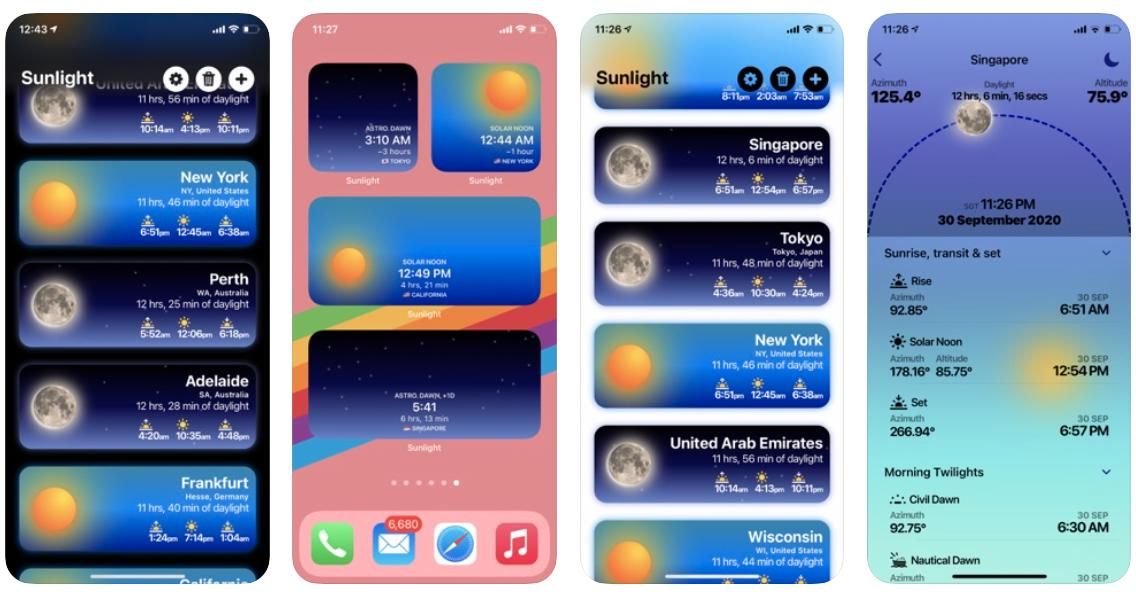Is it possible to buy sunshine, even when the sun isn't shining? A novel concept, the potential to "sell sunlight" after dark, has emerged, challenging our understanding of energy and innovation.
The notion of capturing and distributing solar energy beyond the typical daylight hours seems like science fiction. Yet, a California-based startup, known as Reflect Orbital, is actively pursuing this ambition. Their plan centers on deploying a network of satellites equipped with mirrors. These mirrors, strategically positioned in space, would reflect the sun's light towards designated locations on Earth, essentially delivering sunlight "on demand," even during nighttime.
The core challenge lies in the limitations of solar power as we know it. Solar farms, while increasingly prevalent, are inherently reliant on daylight. As the sun sets, these farms cease generating electricity, much like a generator running out of fuel. Reflect Orbital's solution, however, proposes a way around this constraint. By redirecting sunlight from space, they aim to provide a continuous energy source, regardless of the time of day.
The concept has garnered attention, sparking a mix of curiosity and skepticism. For instance, a former SpaceX executive is reported to have a similar vision, aiming to keep solar farms operational around the clock using reflected sunlight. The implications of this technology are far-reaching. If successful, it could revolutionize the energy sector, offering a more reliable and consistent power supply. It also could shift the economics of solar energy, making it a more competitive alternative to traditional fossil fuels. While the idea is still in its nascent stages, the potential impact is undeniable.
At the heart of Reflect Orbital's strategy is the creation of "space mirrors." These specialized mirrors, once in orbit, will capture the sun's rays and redirect them towards specific locations on Earth. The precision of this process is crucial. The satellites must be carefully positioned to accurately reflect sunlight onto solar panels. This level of precision will likely require advanced technology and sophisticated orbital mechanics. The concept was recently presented by Reflect Orbital's CEO, Ben Nowack, at the International Conference on Energy from Space, further fueling the ongoing debate.
The idea evokes a sense of wonder and disbelief. Imagine a world where the sun never truly sets, or where a shot of sunshine is as readily available as a takeout meal. By taking the idea and implementing technology found in apps that work as delivery service, Reflect Orbital hopes to deliver sunlight reflected from space directly to where people need it. This could transform how we think about energy production and distribution, turning a long-held limitation into a potential opportunity. The company's vision extends beyond mere power generation; it's about offering energy on demand.
The project has been met with a mixed reception. Some view it with astonishment, but others wonder whether it is actually possible, but the business is also inviting users to send in applications explaining why they need the company.
The technological hurdles are considerable. In addition to the challenges of launching and maintaining a network of satellites, the efficiency and cost-effectiveness of the entire system remain to be seen. Moreover, the environmental impact of such a project needs careful consideration. The launch of numerous satellites into space and the long-term effects of reflecting sunlight back onto Earth could raise environmental concerns that must be addressed.
The debate encompasses numerous aspects, from technological possibilities to economic viability, and the need for regulatory oversight. With the innovation in a very nascent stage, its important to analyze and watch the project unfold, with further advances and development the reality of selling sunlight after dark could become a reality.
| Name | Ben Nowack |
| Title | CEO, Reflect Orbital |
| Company | Reflect Orbital |
| Education | Information not publicly available |
| Career Highlights | Presented the concept of selling sunlight at the recent International Conference on Energy from Space. |
| Key Focus | Developing space mirrors to reflect sunlight onto solar panels for continuous power generation. |
| Vision | To provide on-demand sunlight, offering an alternative to traditional energy sources. |
| Website (Reference) | Reflect Orbital Website |
The concept of harvesting solar energy from space has captured the imagination of many, even if the details seem like something out of a futuristic film. The ability to harness the sun's power 24/7 and eliminate the traditional constraints of daylight hours could drastically change the way energy is generated and distributed. If proven successful, the impact of this kind of technology on the world's energy landscape, the environment, and the economy could be profound.
However, this ambitious endeavor is not without its critics. The question remains: Is it realistic to launch, maintain, and operate a constellation of satellites equipped with mirrors to reflect sunlight onto specific locations on Earth? The project must also deal with the cost of the initial investment and ongoing operations. The financial viability of the project will play a key role in deciding its future success. The complexity of accurately redirecting sunlight from space to solar panels on Earth is another serious challenge.
The emergence of this technology could also spark important discussions about space debris and the long-term consequences of launching so many satellites. The potential impact on Earth's ecosystem and the need for environmental considerations are also important. Proper planning, monitoring, and safeguards must be implemented to mitigate any potential harmful effects. Environmental impact studies and safety protocols will be crucial to ensuring that innovation progresses responsibly.
While it's easy to get lost in the details, the central goal of Reflect Orbital is simple: to make sunlight accessible around the clock. Their approach, if successful, would fundamentally transform our energy systems. The concept also extends to everyday products. For example, apps that track the sun's position, path, and shadows at any time and place, visualizing golden hour, sunrise, sunset, and more on maps and live in AR, are becoming more readily available. This technology is useful for real estate, solar (PV) applications, photography, and outdoor activities. The ability to continuously change the color and brightness of lights to match the outside world to help align with our circadian rhythm is another interesting development. With platforms, learning, and even education can be part of the process.
The story of Reflect Orbital and similar ventures reflects a larger trend in the energy industry, a trend toward seeking more reliable, efficient, and sustainable energy sources. It's a story about innovation, the ability to challenge limitations, and the enduring quest to harness the power of the sun in new and innovative ways. The idea of "selling sunlight after dark" is still being explored and the technology still being built. But it represents a bold step toward a future where access to energy is more consistent, sustainable, and available.
The innovation in energy technology is a continuous journey. The initiative and development by Reflect Orbital may pave the way for a world in which energy is more accessible. The future of energy is being shaped today by businesses and people who have the vision and boldness to rethink our energy sources. The sun remains an inexhaustible source of power, and projects like Reflect Orbital highlight its potential to be harnessed in increasingly creative ways. The story is just beginning, and the potential of the sun continues to amaze, encouraging us to imagine the possibilities that lie ahead.


